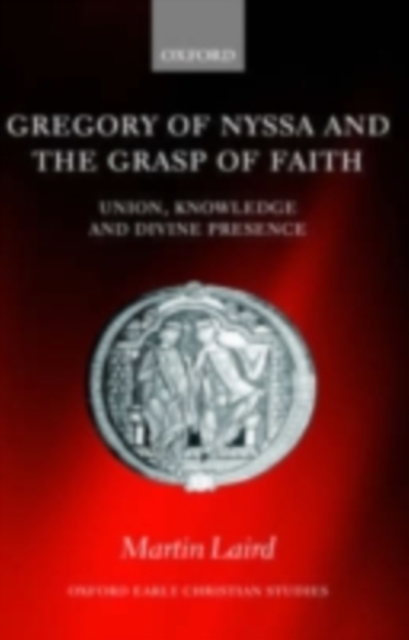
Gregory of Nyssa and the Grasp of Faith : Union, Knowledge, and Divine Presence PDF
by Martin Laird
Part of the Oxford Early Christian Studies series
Description
Scholars of Gregory of Nyssa have long acknowledged the centrality of faith in his theory of divine union.
To date, however, there has been no sustained examination of this key topic.
The present study fills this gap and elucidates important auxiliary themes that accrue to Gregory's notion of faith as a faculty of apophatic union with God.
The result adjusts how we understand the Cappadocian's apophaticism in general and his so-called mysticism of darkness inparticular. After a general discussion of the increasing value of faith in late Neoplatonism and an overview of important work done on Gregorian faith, this study moves on to sketch a portrait of the mind and its dynamic, varying cognitive states and how these respond to the divine pedagogy of scripture, baptism, and the presence of God.
With this portrait of the mind as a backdrop we see how Gregory values faith for its ability to unite with God, who remains beyond the comprehending grasp of mind.
Aclose examination of the relationship between faith and mind shows Gregory bestowing on faith qualities which Plotinus would have granted only to the `crest of the wave of intellect'. While Gregorian faith serves as the faculty of apophatic union with God, faith yet gives something to mind.
This dimension of Gregory's apophaticism has gone largely unnoticed by scholars.
At the apex of an apophatic ascent faith unites with God the Word; by virtue of this union the believer takes on the qualities of the Word, who speaks (logophasis) in the deeds and discourse of the believer.
Finally this study redresses how Gregory has been identified with a `mysticism of darkness' andargues that he proposes no less a `mysticism of light'.
Information
-
Download - Immediately Available
- Format:PDF
- Publisher:OUP Oxford
- Publication Date:30/04/2004
- Category:
- ISBN:9780191533228
Information
-
Download - Immediately Available
- Format:PDF
- Publisher:OUP Oxford
- Publication Date:30/04/2004
- Category:
- ISBN:9780191533228










